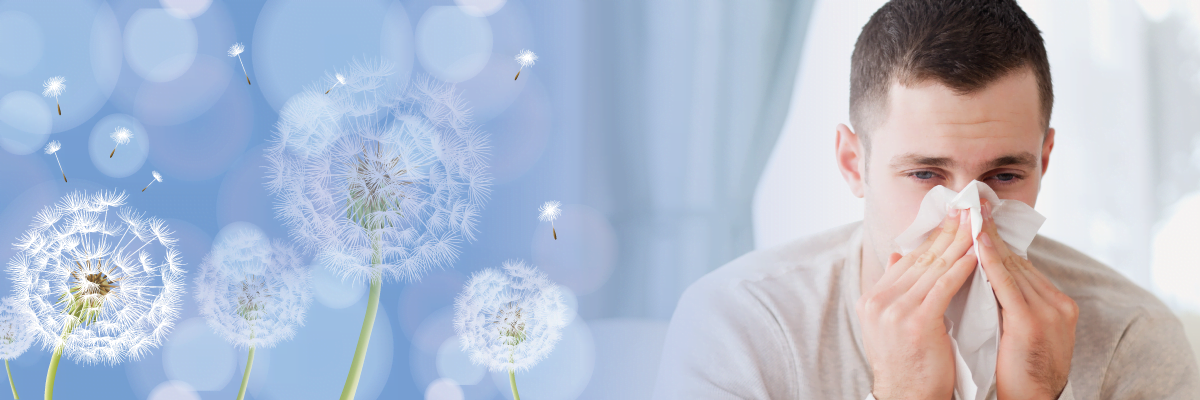Estimated reading time: 5 mins
As the weather gets warmer and daylight lasts longer, most people welcome these changes with open arms. For hay fever sufferers, this usually isn’t the case. Affecting around 13 million people in the UK, hay fever can negatively impact someone’s life for weeks – if not months – at a time. And because it can get worse at night-time thanks to pollen becoming trapped indoors (and even certain food and drink exacerbating symptoms), hay fever may cause you to snore.
What is hay fever?
Hay fever is an allergic reaction to pollen. Pollen is a powdery substance released by plants as part of their reproductive cycle. It contains proteins that may cause you to have the following symptoms:
- Sneezing and coughing
- Runny or blocked nose
- Itchy, red or watery eyes
- Loss of smell
- Pain around your temples and forehead
- Itchy throat, mouth, nose and ears
- Headache
- Earache
- Feeling tired
Hay fever is worse when the pollen count is at its highest, usually between late March and September. Different types of weather play a part in how much people suffer. Hot, humid and windy weather can worsen symptoms.
What people often don’t realise is how debilitating it can be on someone’s life. From decreasing productivity levels, to negatively impacting mental health. It’s not a condition that can just be dismissed.
Does hay fever make you snore?
You may be all too familiar with the daily disruption hay fever causes you. But did you know it can also make you snore – or make ongoing snoring even worse? Hay fever causes your nasal tissue to swell, so the airflow through your nose becomes blocked or restricted. This narrowed airway forces the air you breathe to travel faster and dehydrate the tissue. You may then have to switch to breathing through your mouth, leading to snoring.
How to prevent hay fever and help your snoring
Shower before bed
A night-time shower is a great way to get rid of stray pollen attached to your hair and body from the day. It also lowers your body temperature, which can help you fall asleep quicker and sleep longer.
Wash pillowcases frequently
When the pollen count is high, it’s sensible to wash your bedding more often. Putting your pollen covered head on your pillowcase isn’t going to help the other preventative actions you’re taking.
Take antihistamines
Antihistamines are medicines used to relieve the symptoms of hay fever and other allergies. They block the effects of a molecule called histamine which is involved in your allergic reaction to pollen. You can often buy them from a shop or pharmacy, however some are only available on prescription.
Dry laundry indoors
You may think it’s a good idea to dry your clothes outside in the summer breeze, but in reality this will cover them in pollen. Dry your laundry indoors away from windows.
Use an air purifier
Want to create a home environment free of pollen? Air purifiers are a great way to trap pollen and filter out other potential allergens. The microscopic nature of the particles makes them hard to see with the naked eye. There are various air purifiers on the market – the key is getting one that isn’t as loud as your snoring!
How to treat snoring with congestion
As well as trying the suggestions above, using a product to open your airways can provide great relief. The Snoreeze Nasal Spray helps to decongest your nasal passages, meaning you can breathe easily again. Because it’s made from natural ingredients, it’s safe to use every night. You could also try the Snoreeze Nasal Strips. Their flexible bands gently open your airways, providing snoring relief for up to 8 hours.
Don’t let hay fever take over your life – find your snoring relief and breathe easier at night. For more information on snoring click here.

